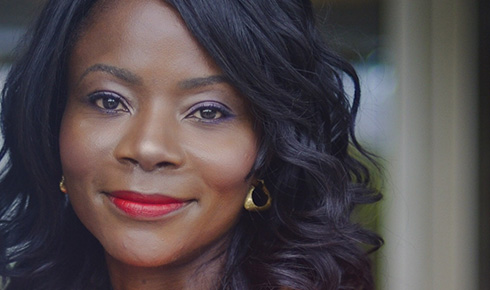
“Excuse me,” said a sharp, stern voice. I half-turned to see who had disturbed my morning bagel-and-cream-cheese feast. My eyes landed on a 30-something female glaring at me.
“Yes?” I answered, trying to remember if we had met before.
“How did you get in here?” she asked, her voice dripping with accusation. “This lounge is for doctors only.”
I was rendered speechless. An all-too-familiar mixture of hurt, confusion, anger and embarrassment washed over me. I looked down at my well-curated, professional clothing and clean, appropriate shoes and wondered what, to her, looked out of place. I looked at the electronic hospital pass clipped on my jacked with my name and “M.D.” printed on it in bold type. The pass granted me access to this doctors-only lounge.
“I am a doctor,” I heard myself say in a strangled voice, pointing to my nametag. Her eyes darted to my badge as she began to blush. Embarrassment and apologies followed soon after, but she was unable to offer any further explanation for her query apart from what was painfully obvious to both of us.
As the interaction ended, I wanted to scream—what was it about me that didn’t fit her description of a doctor? But we both already knew the answer to that. I tried to finish my bagel, but realized I was blinking back tears. I had lost my appetite. I looked regretfully at the bowl of fresh fruit I was planning to eat. I got up to leave. I needed to be alone.
As a black female physician, I have learned to endure the combinations of subtle and overt racism in medicine. My experiences range from patients outright refusing to be seen by me, to some questioning my qualifications, and at times preferring the opinions of the white nurses I supervise, as opposed to my expert opinion.
Racism is not new. It tried to rear its ugly head in the early church. In Acts 6, we see the godly way to deal with it. First, it was recognized by the leadership. The voices and the outcries of the oppressed were heard and honored. A committee of carefully selected members was formed, selected with an emphasis on the fullness of the Holy Spirit and wisdom (v. 3). Their task was to actively combat racism in the church on behalf of all God’s children.
The apostles made this divisive issue a priority and labored tirelessly in the ministering of the Word (teaching and preaching) and in prayer to prevent the deepening of this schism in the body of Christ.
Again, the Bible has provided us with a blueprint on how to approach and conquer this issue that still plagues our society. The issue of racism cannot be separated from our ministry. The church must listen, pray and honor all members of the community and seek the fullness of the Spirit to love our neighbors as Jesus commanded.
Prayer + Reflection
- Pray for a deeper understanding and appropriation of the love of God to help drive out bitterness, hurt, self-centeredness, insecurity, indifference, fear and awkwardness from us, that we might experience the Holy Spirit’s refreshing, healing, provision and joy in our lives (Rom. 5:5).
- Pray for ideas, strategies and courage to be proactively inclusive of all individuals in all aspects of your ministry and personal life (Eph. 2:19).
- Thank God for making people different in appearance and temperament, because that is His purpose, and it gives Him great pleasure. Thank God by faith for the ability to celebrate the differences while holding on to what unites us, which is the presence of the Holy Spirit (Acts 17:26-28).
- As our nation and the church engage in dialog and recognition of these deep issues, let’s also remember those who are sick or at risk from the COVID-19 pandemic. Ask God for holy protection and provision for churches seeking to minister in their communities right now, and for healing for those who are sick.
Share your thoughts. See comments below, and add your own.


